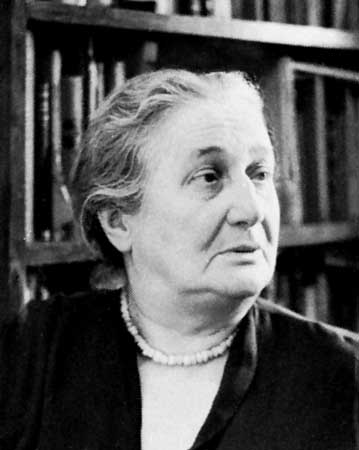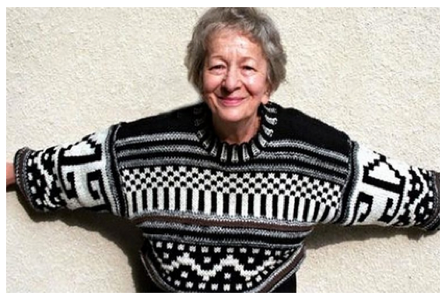APS TOGETHER
Day 5
A Large Number. Pages 197-233.
August 10, 2020 by Ilya Kaminsky
A Large Number is the title of her mid-career book, and indeed, by the mid-70s, Szymborska goes full force investigating all kinds of large unanswerable questions. She opens the book with “A Large Number,” telling us straight:
“Four billion people on this earth,
but my imagination is still the same.
It’s bad with large numbers.
It’s still taken by particularity.”
Note: Non omnis moriar, in the second stanza, comes from the Latin of Horace (Odes, Book 3, Ode XXX) —“I shall note wholly die”
She will be approaching impossibly large general subjects all through the book: the socialist ideal of utopia in “Utopia,” the mathematical concept of “Pi.” No subject is too big to avoid her desire to prove its need for nuance.
But I want to come back to our conversation about her evolution as a love poet. We are given a “Thank-You Note” that begins with the following lines:
“I owe so much
to those I don’t love.”
According to Billy Collins, Szymborska here “expresses her indebtedness to everyone she does not love, because they allow her to be comfortable, to see things calmly for what they are.”
“They themselves don’t realize
how much they hold in their empty hands.”
But reading “Thank-You Note,” I think instantly of these famous lines from Marina Tsvetaeva:
Мне нравится, что вы больны не мной,
Мне нравится, что я больна не вами,
Что никогда тяжелый шар земной
Не уплывет под нашими ногами.
[…] Спасибо вам и сердцем и рукой
За то, что вы меня — не зная сами! —
Так любите: за мой ночной покой
I won’t pretend that these lines are translatable into English. So, here is a quick prose gloss. Echoes. Echoes.
“I like, that you are sick not with me, I like it, that I am not sick with you, that never will the heavy globe drift away under our feet […] Thank you, heart and hand, that you—without knowing it—love me so: for my night calm.”
— Marina Tsvetaeva
Before we look at “Lot’s Wife,” here is the biblical account in its entirety: “But his wife looked back from behind him, and she became a pillar of salt” (Genesis 19:26)
We don’t get to know her name, do we?
Szymborska turns a single sentence into two dozen possible explanations. A waterfall of a poem.
Clare Cavanagh: The poem joins the company of Szymborska’s many poem-lists in which a harried speaker struggles to keep up with a reality that resists all efforts to contain it in lyric form. [Here we have] not just the speaker’s own confusion—she herself doesn’t know precisely why she did it—but [also][ our confusion about the speaker. Who is turning back here? The answer seems clear enough—Lot’s wife herself. And to what does she return? The picture begins to blur the minute we ask the question.
This poem is incredibly intense. Yet, part of its intensity is its ability to contain its distance: “I felt age within me. Distance.”
Remember Wallace Stevens’ 13 Ways of Looking at a Blackbird? Well, here are numerous ways of looking at “Lot’s Wife”:
“It seemed to me that they were watching from the walls of Sodom
and bursting into thunderous laughter again and again.
I looked back in anger.
To savor their terrible fate.
I looked back for all the reasons given above.
I looked back involuntarily.
It was only a rock that turned underfoot, growling at me.”
For me, the drama of this piece is in its changing perspectives, yes. But I also find drama in an accumulation, a cascade of these perspectives, in the speed at which they are given to us via the syntax. I find drama in the variation of images.
More echoes: Anna Akhmatova was one of the earliest well-known admirers of Szymborska. She translated a few of her poem into Russian. I recall this here because Szymborska’s “Lot’s Wife” brings to mind Akhmatova’s “Lot’s Wife,” which Szymborska no doubt read before writing her own.
“Who will mourn for this woman?” Akhmatova asks, “Is she not the least of losses? / My heart alone will never forget / She who gave her life for a single glance.”

“The Terrorist, He’s Watching” is one of Szymborska’s most famous poems. I love this piece for its sense of suspense. We know how it all is going to end, yes. But the proverbial Devil is in details.
Remember Cassandra’s words, “look at yourself from the stars, I cried”? The poem at hand poem follows that advice.
The whole piece is observed from the distance. But there’s so much emotional pressure that is implied by the fact of who is doing the watching.
By which I mean to say: note the incredible job the title is doing in this poem. On the first glance, the title is super simple. But note how much it does to set up the perspective of this poem, how much it contributes to its emotional pressure. We haven’t entered the poem yet, and the title has already put us on edge.
Instructive to compare the construction of this poem to “Photograph from September 11”: vivid echoes between the two pieces. Echoes occur both in content and structure.
I have already mentioned Szymborska’s various skillful uses of negation, but perhaps they reach their highest point in the wonderful piece called “In Praise of My Sister”:
“My sister doesn’t write poems,
and it’s unlikely that she’ll suddenly start writing poems.
She takes after her mother, who didn’t write poems,
and also her father, who likewise didn’t write poems.
I feel safe beneath my sister’s roof”

The sense of excess in this piece is very fine, she says so much, and so passionately, about her sister’s lack of interest in writing poetry that this excess, by the end, becomes the essence of poetry itself:
“But her entire written opus consists of postcards from vacations
whose text is only the same promise every year:
when she gets back, she’ll have
so much
much
much to tell.”
The humor here becomes something else: ecstatic.
